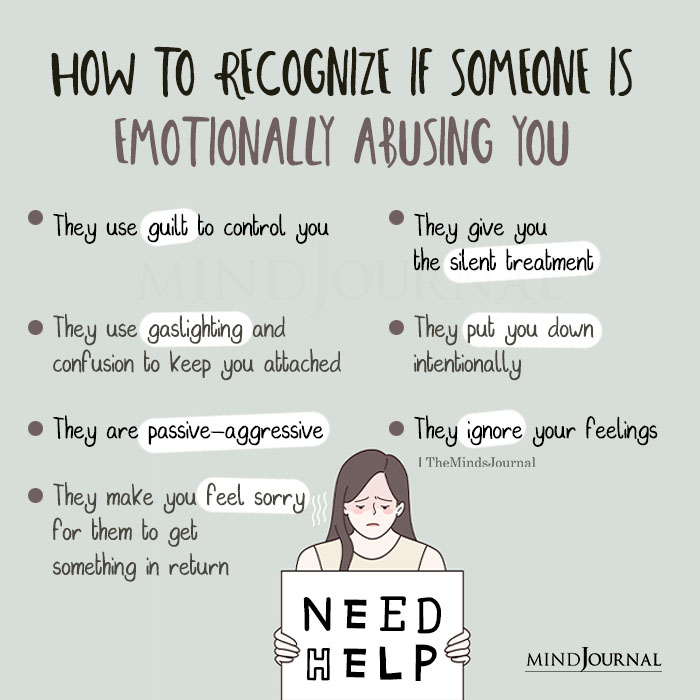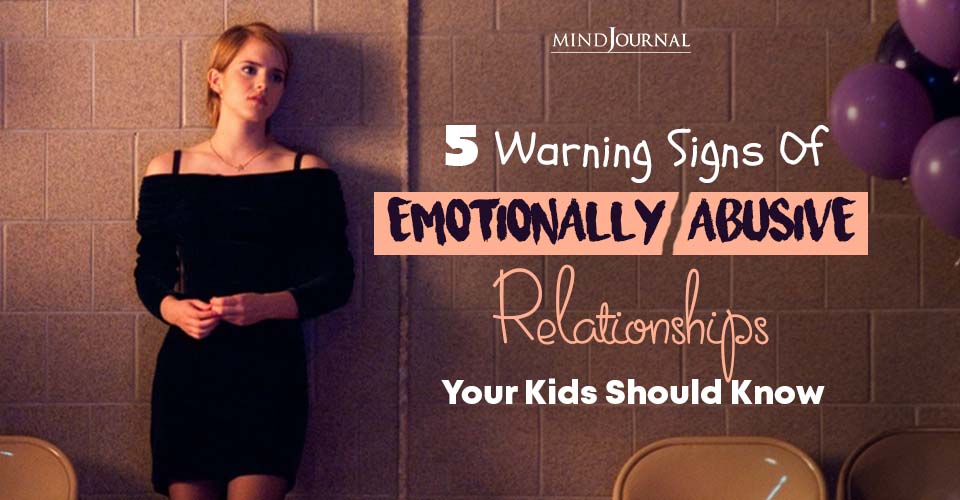Emotional abuse and emotionally abusive relationships can be as destructive and damaging as physical abuse, and can severely impact your mental health. An emotional abuser’s tendencies are to undermine another person’s feelings of self-worth and independence.
It’s used as a way to maintain power and control over someone, and that’s why it’s crucial to understand the warning signs of abusive relationships.
It is necessary to teach kids to understand the signs of an emotionally abusive relationship from a young age so that they may know how to maneuver their way into adulthood better.
As parents or teachers, it is our responsibility to see that our kids don’t end up with emotionally abusive partners. Although they are free to make the decision of who they choose as friends for themselves, it would be wise to educate them in understanding how to deal with emotional abuse.
This can help them build stronger and more meaningful relationships. In order for our kids to understand emotionally abusive relationships, they need to know how to identify one.
Related: 10 Things That Happen Only in an Emotionally Abusive Relationship
Signs of Emotional Abuse
- Verbal abuse: Yelling at you, insulting you, or swearing at you.
- Rejection: Constantly rejecting your thoughts, ideas, and opinions.
- Gaslighting: Making you doubt your own feelings and thoughts, and even your sanity, by manipulating the truth.
- Put-downs: Calling you names or telling you that you’re stupid, publicly embarrassing you, blaming you for everything. Public humiliation is also a form of social abuse.
- Causing fear: Making you feel afraid, intimidated, or threatened.
- Isolation: Limiting your freedom of movement, stopping you from contacting other people (such as friends or family). It may also include stopping you from doing the things you normally do – social activities, sports, school, or work. Isolating someone overlaps with social abuse.
- Financial abuse: Controlling or withholding your money, preventing you from working or studying, stealing from you. Financial abuse is another form of domestic violence.
- Bullying and intimidation: Purposely and repeatedly saying or doing things that are intended to hurt you.

Every parent wants their kids to make wise choices when it comes to relationships, but the unfortunate reality is that even smart kids can unwittingly form friendships or romantic interests with abusive people. This should not be held against them, rather we must let them understand so that they can learn from their mistakes and decide more wisely in the future.
Physical abuse is pretty straightforward; emotional abuse can be harder to find out. Your kid must know how to avoid and deal with those with emotionally abusive behaviors as soon as they know how to identify them.
The sooner we teach our kids to recognize the early warning signs that a potential friend or romantic partner might be an unhealthy choice, the better.
Here are some questions kids can ask themselves to identify warning signs of emotionally abusive relationships.
5 Warning Signs Of Abusive Relationships Your Kids Should Know About
1. Does the person seem unreasonably jealous?
Jealousy is indeed a wasted emotion and has nothing but negative outcomes. Kids are just learning how to navigate social relationships in general, so some jealousy among friends is normal. But as kids get older, that kind of immature jealous reaction to friends hanging out with other people should diminish.
Kids — and especially teens who are approaching the dating stage — should know that jealousy is not a healthy or flattering quality in a friend or potential love interest.
Related: 10 Emotional Abuse Tattoos That’ll Empower You To Overcome Your Struggles
2. Does the person try to isolate you from others?
It’s normal and healthy to have relationships with many people. One of the major signs of an emotionally abusive partner is when they try to cut you off from others and keep you all to themselves.
If this keeps on happening, then know that it’s time to step back and reevaluate your relationship if you find yourself losing friends or feeling guilty for spending time with other people. Your partner must not feel entitled to your time and presence so much so that they use it to satisfy their selfish desires.
3. Does the person make you feel bad about yourself?
Your kid should never be in a relationship with a person who makes them look down on themselves. Abusers can be master emotional manipulators. They may say or do cruel things, then say they’re only joking.
It’s one of the classic warning signs of abusive relationships, making your kid feel bad and then making them feel guilty or stupid for feeling bad. Healthy relationships uplift you. Love doesn’t demean or ridicule.
4. Do they constantly call or text when you’re not together?
Puppy love can create a kind of “I can’t stand being apart for five minutes” feeling, but there’s a step beyond that which moves into obsession and control.
Obsession can play a very negative role in any relationship. If the person seems to be constantly checking in with you to see what you’re doing or where you are or whom you’re with, that’s an unhealthy sign. Nobody needs a controlling friend or partner.
Related: 7 Things That Look Like Love But Are Actually Emotional Abuse
5. Do they “punish” you for not giving them enough of your time or attention?
Emotionally abusive relationships make abusers feel entitled to your time and attention and will make you pay or make sure you’re punished in some way if they don’t get it. They may turn cold and make you feel guilty and may threaten to end your relationship.
Abusers may threaten to spread rumors about you and may threaten to hurt you. They may even threaten to hurt themselves if you leave. Threats are red flags — always.

Allowing our kids to learn to treasure healthy relationships and steer clear of emotionally abusive relationships is one of the most important life skills we can offer as parents. None of us want to imagine our kids being hurt by people who are supposed to care for them.
If we teach our kids to be aware of the warning signs of abusive relationships, hopefully, they won’t find themselves in a relationship they have to fight their way out of — physically or emotionally.











Leave a Reply